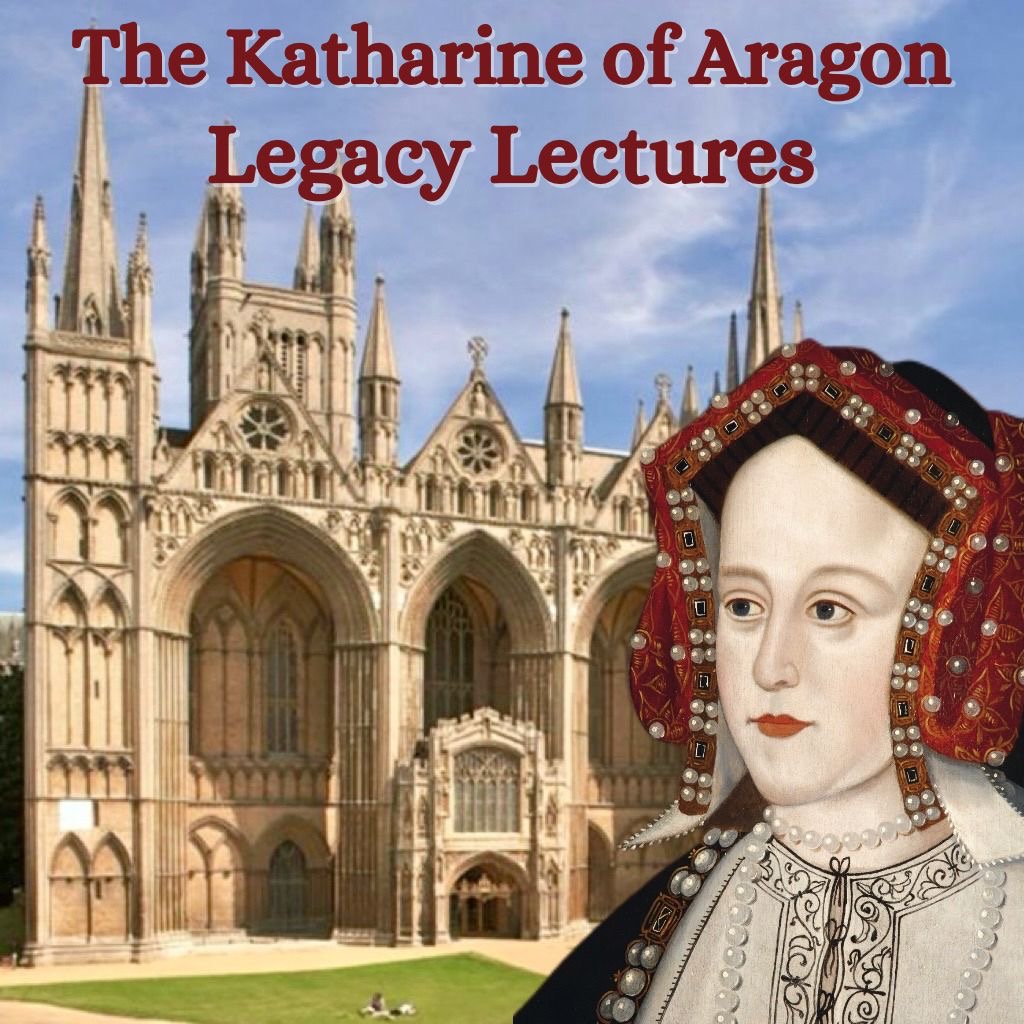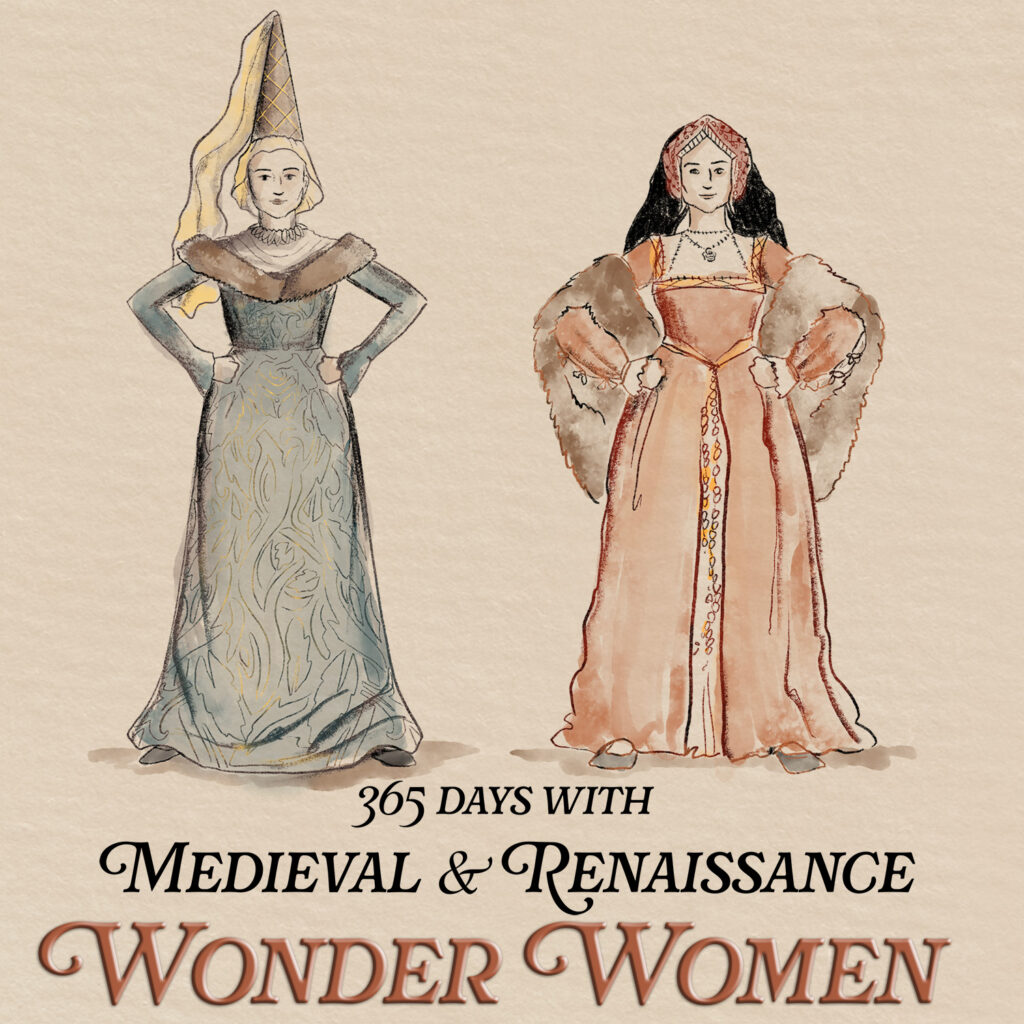I’d like to congratulate my dear friend Wendy J. Dunn on the release of her latest Tudor novel, ‘Falling Pomegranate Seeds: All Manner of Things’, and welcome her back to On the Tudor Trail!
To my delight, Falling Pomegranate Seeds: All Manner of Things received three new five-star reviews at the end of 2020, a month before its official publication date. These reviews made me more than simply happy, but also reflective.

Heidi (Adventures of a Tudor Nerd) wrote, “I only knew about María de Salinas through brief mentions of her in biographies and other novels about Katherine of Aragon, so I was excited to read her story”. Amy at Endo the road opened her review by saying, “I was aware of María de Salinas before reading this but had little knowledge of her own story”. Cindy L. Spear commented, “María’s life itself is a fascinating one…”
That is the thing. It is impossible to know if María lived a fascinating life, or not. I believe she must have lived an extraordinary life during her time with Katherine of Aragon. But history shrouds María’s life in the deepest shadows. We know very little about her.
All Manner of Things gave me two stories to tell – one about Katherine of Aragon, and the other about María de Salinas. For me, historical fiction is a fictional story informed by history. All Manner of Things reconstructs Katherine’s story through the use of imagination fed upon historical facts. With history so silent about María, I used my imagination to fill the gaps. Omissions and erasures offer opportunities for fiction writers to plot their work by asking what if? (Edwards 2007). What if, I asked myself, María met and fell in love with her future husband – married then to another woman – when she first arrived at court in 1501? What if she saw the future Henry VIII with the eyes of a woman unfettered by the knowledge he could one day be her husband? What if María provides for the reader complete access to the life of Katherine of Aragon?
‘What if?’ questions and historical research feeds my imagination in the crafting of my novels. Researching the life of Katherine of Aragon provided me with glimpses of María de Salinas. It was more of a glimpse when I read of María’s winter ride in 1536 to Kimbolton Castle, determined to be with the dying Katherine of Aragon. This story of a woman, in her early fifties, riding in treacherous weather conditions to what was the virtual prison of Katherine of Aragon, ignited my imagination. María even rode to Kimbolton Castle lacking the necessary permission from Henry VIII. She arrived at the closed-up castle hurt from a fall from her horse – which she used to her advantage, demanding admittance to the castle due to her injuries. But as soon as she was inside, she managed to slip away, going straight to the chambers of Katherine of Aragon. María stayed with Katherine until Katherine breathed her last in her arms.
It is a gorgeous story of love and friendship from history – one that gives me goosebumps. But that is the only story of true substance I was able to find out about María. History hides the rest of her story. I could not even find a portrait of her.
So – what did I know to construct her story? I knew she was a lifelong friend and fellow country woman of Catalina of Aragon. I knew she served Catalina with great devotion for many years. She married approaching thirty or just over thirty – very late for a woman of her times. Her husband was a wealthy, childless widower – and his death, about ten years after their marriage, left her vulnerable to a brother-in-law determined to take wealth belonging to María’s daughter, his niece. This, I believe, led to María’s decision to place her daughter Katherine as the ward of Charles Brandon, the duke of Suffolk. This wardship protected her small daughter from men like her uncle. Maria also expected Katherine to one day marry the son of Charles Brandon and his wife, Mary Tudor, the sister of Henry VIII. Unfortunately, Mary Tudor’s death in 1533 overturned all these plans. With his only son and heir believed to be dying, Charles Brandon married his young ward weeks after the death of his wife.
Besides these facts, history told me little else about María de Salinas. I had a feast from history to draw from for my story about Katherine of Aragon, but had to rely on my imagination for the voice and story of María de Salinas. Giving voice to and appropriating the life story of a person of the past plays a major part in the crafting of historical fiction. While this is something I do as a writer of historical fiction writer, it does not mean I do it without much soul searching. During the construction of my first drafts, I ask myself again and again if I have any right to give voice to the people of the past? The amount research I do about my subjects is what gets me through my doubts. I also believe these people deserve their stories to be remembered, and told. Even if it means using imagination (imagination drawing from research) to do so.
William Styron once wrote:
“While it may be satisfying and advantageous for historians to feast on rich archival material, the writer of historical fiction is better off when past events have left him with short rations” (2010, p. 428).
I have found the truth of these words in all my novels. In these works, I gave voice to then little-known historical personages. But the fascinating bones of their lives were there for me to put flesh on by the means of my imagination. Knowing so little, gives my imagination the freedom to imagine.
By Wendy J. Dunn
Works cited:
Edwards, H. (2007) “Writer on Ice: writing styles and serendipity” Jabberwocky, The Looking Glass, Volume 11, Issue 3, 2007
Styron, W. 2010, The Confessions of Nat Turner, Kindle edition: Open Road.
About the Author

Wendy J. Dunn is an award-winning Australian author, playwright and poet. She is the author of fourTudor novels: Dear Heart, How Like You This?, The Light in the Labyrinth, her first young adult novel, and Falling Pomegranate Seeds: The Duty of Daughters and Falling Pomegranate Seeds: All Manner of Things. Wendy is also tutors in writing at Swinburne University.
Buy a copy of Falling Pomegranate Seeds: All Manner of Things

















I really respect what you said here about your forethought to writing historical fiction. It’s clear your respect your subject and your craft! I look forward to reading your book!
Thank you, Rebecca! I really hope you will like it!
Warmly,
Wendy
Looking forward to your new book! Thanks for sharing. I enjoy your articles for the Tudor Society magazine, and I appreciated this, too. Michelle t
Thank you, Michelle! Really treasure your kind words!
Warmly,
Wendy
So happy you have enjoyed my articles, Michelle!
And do hope you will like my new novel!
Warmly,
Wendy
So interesting! I look forward to reading the story of Maria. And I loved your reflections on filling in the gaps of history’s shadowy figures.